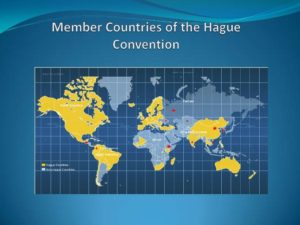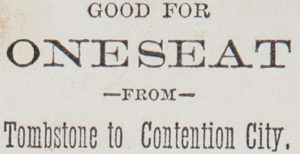 Except for a claim based on a contract with D/FW Airport, as to which the Legislature had partially waived immunity, the Airport was otherwise immune from suit: “The parties agree that the Board hired Vizant to reduce the costs of collecting fees for processing credit card payments. The record shows that the Board collects those fees in connection with its operation of an airport, something it is expressly authorized by statute to do. he operation of an airport is expressly defined by statute as a governmental function that is exercised for a public purpose and is a matter of public necessity. And an airport is expressly designated by statute to be a nonproprietary function. A plaintiff may not split various aspects of a city’s operation into discrete functions and recharacterize certain of those functions as proprietary.” DFW Int’l Airport Board v. Vizant Technologies, No. 05-17-00090-CV (Dec. 15, 2017) (mem. op.) (citations omitted).
Except for a claim based on a contract with D/FW Airport, as to which the Legislature had partially waived immunity, the Airport was otherwise immune from suit: “The parties agree that the Board hired Vizant to reduce the costs of collecting fees for processing credit card payments. The record shows that the Board collects those fees in connection with its operation of an airport, something it is expressly authorized by statute to do. he operation of an airport is expressly defined by statute as a governmental function that is exercised for a public purpose and is a matter of public necessity. And an airport is expressly designated by statute to be a nonproprietary function. A plaintiff may not split various aspects of a city’s operation into discrete functions and recharacterize certain of those functions as proprietary.” DFW Int’l Airport Board v. Vizant Technologies, No. 05-17-00090-CV (Dec. 15, 2017) (mem. op.) (citations omitted).
Monthly Archives: December 2017
 In BB&T v. SWIG Partners LP, the Fifth Court reversed a limitations ruling based on allegedly inadequate efforts to serve all of the defendants, observing: “Twelve of the thirty named defendants were served within three weeks after citations were issued. All the defendants then made an appearance obviating the need for further service of process. See Tex. R. Civ. P. 120. The longest period of time without service on a defendant before all the defendants answered was four business days. The time between the date suit was filed and the date all defendants filed their original answer was twenty-eight days. When three of the defendants were omitted from the defendants’ amended answer, BB&T moved for substitute service. In granting BB&T’s motions for substitute service, the trial court repeatedly found BB&T had diligently attempted service on each of the subject defendants.” No. 05-15-00878-CV (Dec. 13, 2017) (mem. op.)
In BB&T v. SWIG Partners LP, the Fifth Court reversed a limitations ruling based on allegedly inadequate efforts to serve all of the defendants, observing: “Twelve of the thirty named defendants were served within three weeks after citations were issued. All the defendants then made an appearance obviating the need for further service of process. See Tex. R. Civ. P. 120. The longest period of time without service on a defendant before all the defendants answered was four business days. The time between the date suit was filed and the date all defendants filed their original answer was twenty-eight days. When three of the defendants were omitted from the defendants’ amended answer, BB&T moved for substitute service. In granting BB&T’s motions for substitute service, the trial court repeatedly found BB&T had diligently attempted service on each of the subject defendants.” No. 05-15-00878-CV (Dec. 13, 2017) (mem. op.)
 A Mexican company disputed personal jurisdiction in Texas, but ran afoul of special appearance procedure: “A special appearance that merely challenges the method of service fails as a special appearance and constitutes a general appearance. A complaint that a defendant was not served in acccordance with the Hague Convention is a complaint regarding a curable defect in service of process. Such a complaint does not defeat a nonresident’s amenability to the court’s process and thus should not be raised via a special appearance.” Vitro Packaging de Mexico v. Dubiel, No. 05-17-00258-CV (applying Kawasaki Steel Corp. v. Middleton, 699 S.W.2d 199, 202 (Tex. 1985)) (Dec. 13, 2017) (mem. op.) (citations omitted, emphasis added)
A Mexican company disputed personal jurisdiction in Texas, but ran afoul of special appearance procedure: “A special appearance that merely challenges the method of service fails as a special appearance and constitutes a general appearance. A complaint that a defendant was not served in acccordance with the Hague Convention is a complaint regarding a curable defect in service of process. Such a complaint does not defeat a nonresident’s amenability to the court’s process and thus should not be raised via a special appearance.” Vitro Packaging de Mexico v. Dubiel, No. 05-17-00258-CV (applying Kawasaki Steel Corp. v. Middleton, 699 S.W.2d 199, 202 (Tex. 1985)) (Dec. 13, 2017) (mem. op.) (citations omitted, emphasis added)
 In Walls v. Capella Park Homeowners’ Association, Inc., the Fifth Court recapped the standards for a “trial on stipulated facts” under Tex. R. Civ. P. 263 – a useful and underappreciated rule. “An agreed statement of facts under rule 263 is similar to a special verdict; it is the parties’ request for judgment under the applicable law. In a rule 263 agreed case, the only issue on appeal is whether the district court properly applied the law to the agreed facts. Such a review is less deferential to the trial court, because a trial court has no discretion in deciding what the law is or in properly applying it. Id. If the trial court files findings of fact in an agreed case, they are disregarded by the appellate court.” No. 05-16-00783-CV (Nov. 30, 2017) (applying Addison Urban Development Partners v. Alan Ritchey Materials, 437 S.W.3d 597, 600 (Tex. App.—Dallas 2014, no pet.)).
In Walls v. Capella Park Homeowners’ Association, Inc., the Fifth Court recapped the standards for a “trial on stipulated facts” under Tex. R. Civ. P. 263 – a useful and underappreciated rule. “An agreed statement of facts under rule 263 is similar to a special verdict; it is the parties’ request for judgment under the applicable law. In a rule 263 agreed case, the only issue on appeal is whether the district court properly applied the law to the agreed facts. Such a review is less deferential to the trial court, because a trial court has no discretion in deciding what the law is or in properly applying it. Id. If the trial court files findings of fact in an agreed case, they are disregarded by the appellate court.” No. 05-16-00783-CV (Nov. 30, 2017) (applying Addison Urban Development Partners v. Alan Ritchey Materials, 437 S.W.3d 597, 600 (Tex. App.—Dallas 2014, no pet.)).
 Acra v. Bonaudo illustrates the “falling dominoes” problem that can arise from discovery issues. Appellants sought to supersede a judgment with relatively small bonds. The district court found problems with their discovery responses, which interfered with their ability to establish a low net worth at the hearing about bond size. The Fifth Court affirmed: “On the record before us, we deny the request to vacate the trial court’s orders. Without evidence of all of Acra’s and Secner HR’s assets and liabilities, the trial court could not determine their individual net worth. And, without a determination of their individual net worth, the amount of bond, set in accordance with civil practice and remedies code section 52.006 and appellate rule 24.2(a)(1), was not an abuse of discretion.” No. 05-17-00451-CV (Dec. 8, 2017) (mem. op.)
Acra v. Bonaudo illustrates the “falling dominoes” problem that can arise from discovery issues. Appellants sought to supersede a judgment with relatively small bonds. The district court found problems with their discovery responses, which interfered with their ability to establish a low net worth at the hearing about bond size. The Fifth Court affirmed: “On the record before us, we deny the request to vacate the trial court’s orders. Without evidence of all of Acra’s and Secner HR’s assets and liabilities, the trial court could not determine their individual net worth. And, without a determination of their individual net worth, the amount of bond, set in accordance with civil practice and remedies code section 52.006 and appellate rule 24.2(a)(1), was not an abuse of discretion.” No. 05-17-00451-CV (Dec. 8, 2017) (mem. op.)
 DRI’s 2018 Appellate Advocacy Seminar will be held at the Planet Hollywood Resort in Las Vegas from March 14-15, 2018. This year’s seminar will include valuable insights into effective advocacy (including tips from Bryan Garner), and joint sessions with trial court practitioners. The seminar promises great networking opportunities with judges, appellate practitioners and trial advocates from across the country. This year’s seminar will be held in conjunction with the Trial Tactics Seminar, and anyone attending the appellate seminar can attend the final day of the Trial Tactics Seminar for no cost. The seminar also coincides with the beginning of the NCAA men’s basketball tournament, a great time to enjoy the excitement of Las Vegas. You can register for the Appellate Seminar here. Save $100 and get the best hotel rates when you register and book by February 13, 2018.
DRI’s 2018 Appellate Advocacy Seminar will be held at the Planet Hollywood Resort in Las Vegas from March 14-15, 2018. This year’s seminar will include valuable insights into effective advocacy (including tips from Bryan Garner), and joint sessions with trial court practitioners. The seminar promises great networking opportunities with judges, appellate practitioners and trial advocates from across the country. This year’s seminar will be held in conjunction with the Trial Tactics Seminar, and anyone attending the appellate seminar can attend the final day of the Trial Tactics Seminar for no cost. The seminar also coincides with the beginning of the NCAA men’s basketball tournament, a great time to enjoy the excitement of Las Vegas. You can register for the Appellate Seminar here. Save $100 and get the best hotel rates when you register and book by February 13, 2018.
 In Grynberg v. Grynberg, the Fifth Court affirmed a forum non conveniens dismissal when the only meaningful connection between Texas and the dispute was the incorporation of the relevant business in Texas: “Although this case involves a single connection to Texas through the incorporation of Pricaspian, it is a controversy
In Grynberg v. Grynberg, the Fifth Court affirmed a forum non conveniens dismissal when the only meaningful connection between Texas and the dispute was the incorporation of the relevant business in Texas: “Although this case involves a single connection to Texas through the incorporation of Pricaspian, it is a controversy  involving an entity that maintains its offices in Colorado and individuals who, other than [one], reside in Colorado.” The Court also rejected an argument that the “internal affairs doctrine” created a jurisdictional impediment to a Colorado court proceeding with claims about the governance of the Texas business, finding that the doctrine was a choice-of-law concept rather than a jurisdictional limit. No. 05-16-00636-CV (Nov. 28, 2017) (mem. op.) (The “Pricaspian,” incidentally, is a large salt basin northwest of the Caspian Sea.)
involving an entity that maintains its offices in Colorado and individuals who, other than [one], reside in Colorado.” The Court also rejected an argument that the “internal affairs doctrine” created a jurisdictional impediment to a Colorado court proceeding with claims about the governance of the Texas business, finding that the doctrine was a choice-of-law concept rather than a jurisdictional limit. No. 05-16-00636-CV (Nov. 28, 2017) (mem. op.) (The “Pricaspian,” incidentally, is a large salt basin northwest of the Caspian Sea.)
 A clean example of “no evidence,” as a result of the terms of a legal document, appears in Coyle v. Jones: “The express language of the Agreement creating the trust at issue provided that the trust agreement could be revoked ‘at any time during the joint lives of the Trustors.’ (emphasis added). The Agreement further provided that other than that, when either trustor died, “the designation of Beneficiaries of specific gifts in this Trust shall become irrevocable, and not subject to amendment or modification.” The only evidence of revocation before the jury, however, was Frances’s 2010 written revocation. It is undisputed that Frances executed the revocation almost nine years after Stuart’s death.” No. 05-16-00876-CV (Nov. 30, 2017) (mem. op.)
A clean example of “no evidence,” as a result of the terms of a legal document, appears in Coyle v. Jones: “The express language of the Agreement creating the trust at issue provided that the trust agreement could be revoked ‘at any time during the joint lives of the Trustors.’ (emphasis added). The Agreement further provided that other than that, when either trustor died, “the designation of Beneficiaries of specific gifts in this Trust shall become irrevocable, and not subject to amendment or modification.” The only evidence of revocation before the jury, however, was Frances’s 2010 written revocation. It is undisputed that Frances executed the revocation almost nine years after Stuart’s death.” No. 05-16-00876-CV (Nov. 30, 2017) (mem. op.)
 In a rare grant of mandamus relief about written discovery, based on the “heart of a party’s case” concept of irreparable injury, the Fifth Court strongly endorsed the use of “contention” interrogatories and related requests for production. Requests as to which it granted relief included ones seeking:
In a rare grant of mandamus relief about written discovery, based on the “heart of a party’s case” concept of irreparable injury, the Fifth Court strongly endorsed the use of “contention” interrogatories and related requests for production. Requests as to which it granted relief included ones seeking:
- “Specific factual and legal basis for establishing a fiduciary duty owed by Coralli
to Vola. (Interrogatory No. 17)”; - “Documents Vola contends establish, demonstrate, or prove the amount of
uniforms Sting Soccer committed to purchasing from Vola as alleged in
paragraph 17 of the first amended petition. (Request No. 27)”; and - “Documents Vola contends establish, demonstrate, or prove the amount of damages alleged owed to Vola by Sting Soccer. (Request No. 35).”
The opinion makes other useful statements about appropriate discovery objections and requests for admission. In re Sting Soccer Group, No. 05-17-00317-CV (Nov. 30, 2017) (mem. op.)